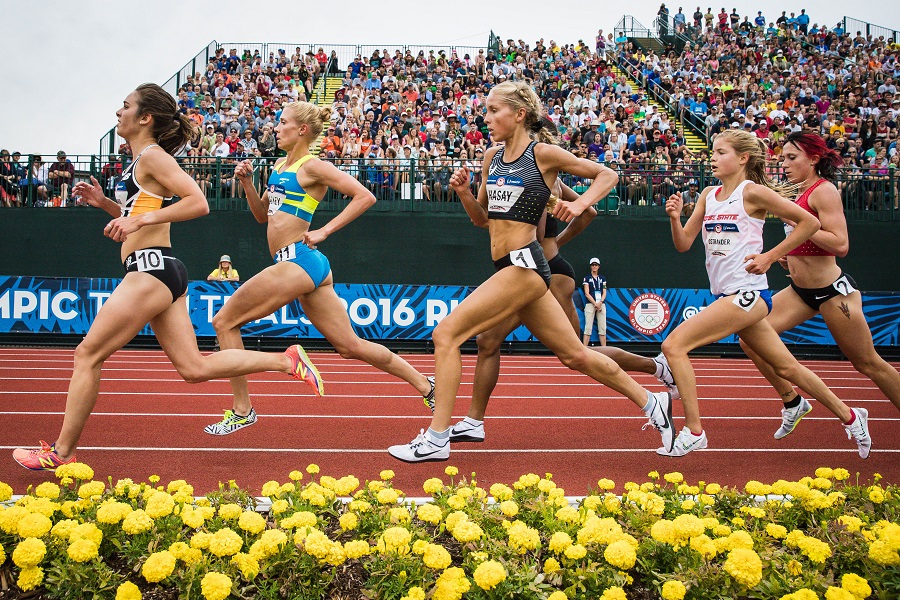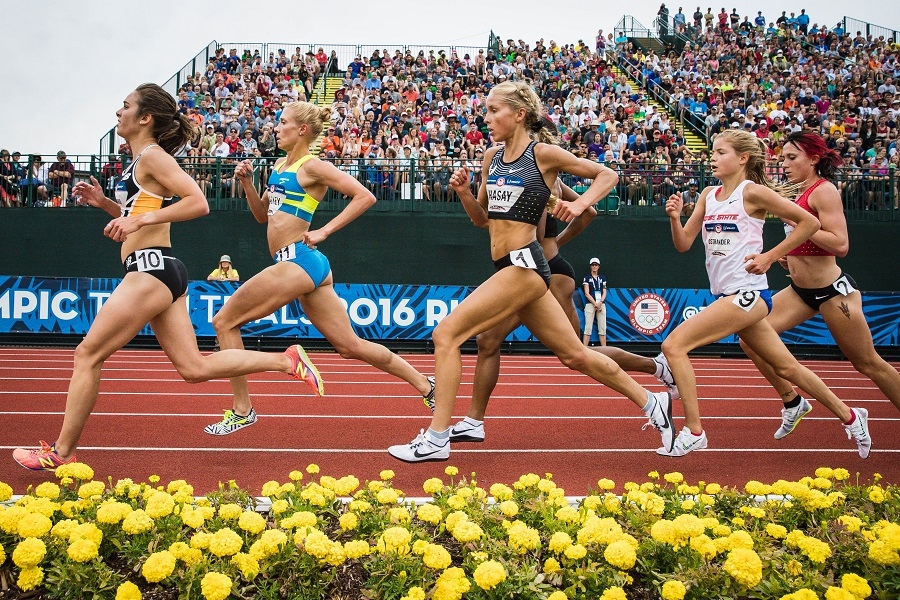Eugene businesses lost out when the Olympic Games were delayed, but the postponed 2021 Olympic Trials could provide the city with economic relief.
According to Brett Rauber, owner of the Campbell House Inn in Eugene, the postponement of the 2020 Olympics was just one more disappointment in a year of setbacks.
His business had undergone a complete recarpeting in anticipation of what was supposed to be two big years of revenue. The University of Oregon’s Hayward Field had undergone a $200 million dollar overhaul. Several prime time-events, including the U.S. Olympic Trials and the NCAA Track and Field Championship, were already lined up.
But the delay of Olympic Games because of the coronavirus pandemic has been a big blow to businesses that profit from the sporting events taking place in the city. The Olympic Games are scheduled to take place later this in Japan.
Olympic track and field trials have been held in Eugene since 2008, and until now, have provided a large economic boost to the city. According to Travel Lane County, the Olympic Trials generated approximately $37 million in 2016. The biggest spending boost is to the food and beverage sector, which makes up 40% of overall visitor spending, followed by hotels and lodging with 23%.
“It definitely is a big chunk of revenue we’re going to miss,” says Rauber. “With the Olympic Trials and the track championship we were looking at two monster Junes. It’s tough because Eugene is a bit of a seasonal town anyway.”
Rauber was not the only one preparing for a profitable 2020. Shops, hotels and restaurants had been waiting for the grand opening since 2018, when construction of the new Hayward Field began.
But other sporting events have adapted to COVID-19 conditions. Although revenue from these events are unlikely to meet expectations, they could still provide the economy a much-needed shot in the arm.

Runners compete at the 2016 Olympic Trials. Photo TrackTown USA
According to Kari Westland, president and CEO of Travel Lane County, it is not possible to estimate accurately the economic impacts for the upcoming Olympic Trials because of all the unknowns around spectator access.
“It’s not just restaurants and hotels; it is shopping, ground transportation, fuel. These events also impact businesses that build and run big events, like commercial arts sectors,” says Westland, who remains cautiously optimistic about the U.S. Olympic Trials and other events returning in the summer.
“It’s still an extremely valuable event from both an economic and civic pride perspective, and a healing event coming out of the pandemic,” says Westland.
As it stands, the Olympic Trials are scheduled to take place June 18–27 this year at the University of Oregon’s Hayward Field, if all goes according to plan. If coronavirus infections remain high, the Olumpic Games could face another delay.
Rauber is preparing for all possible outcomes, including the virus surging and events being postponed indefinitely.
The larger problem, he says, is the lack of University of Oregon events, such as graduations.
“The bigger issue for the town is that there is not the same flow of parents coming to see their kids at the University of Oregon. We used to see 100 parents a week. My priority right now is to get employees vaccinated and dealing with the ones who are skeptical of vaccinations” says Rauber.
Michael Reilly, CEO of TrackTown USA, the group that organizes the Olympic Trials, says it is planning for all possible outcomes depending on the public health outlook at the time.
“We’ve had the benefit of seeing what others have been doing. We’re going to be beneficiaries of coming later. A lot of people have had to figure this stuff out before us,” Reilly
The organization has been working closely with community partners to ensure restaurants will be able deliver food to the events without contact. Online ticketing, which had been gaining steam in the sports world even before the pandemic, will now be commonplace.
Reilly’s organization also benefited from a strong community of athletic event organizers like the Eugene Marathon. Even though the 2021 marathon had to ultimately go online this year, it had plenty of plans and research ready to be shared.
To subscribe to Oregon Business, click here.






